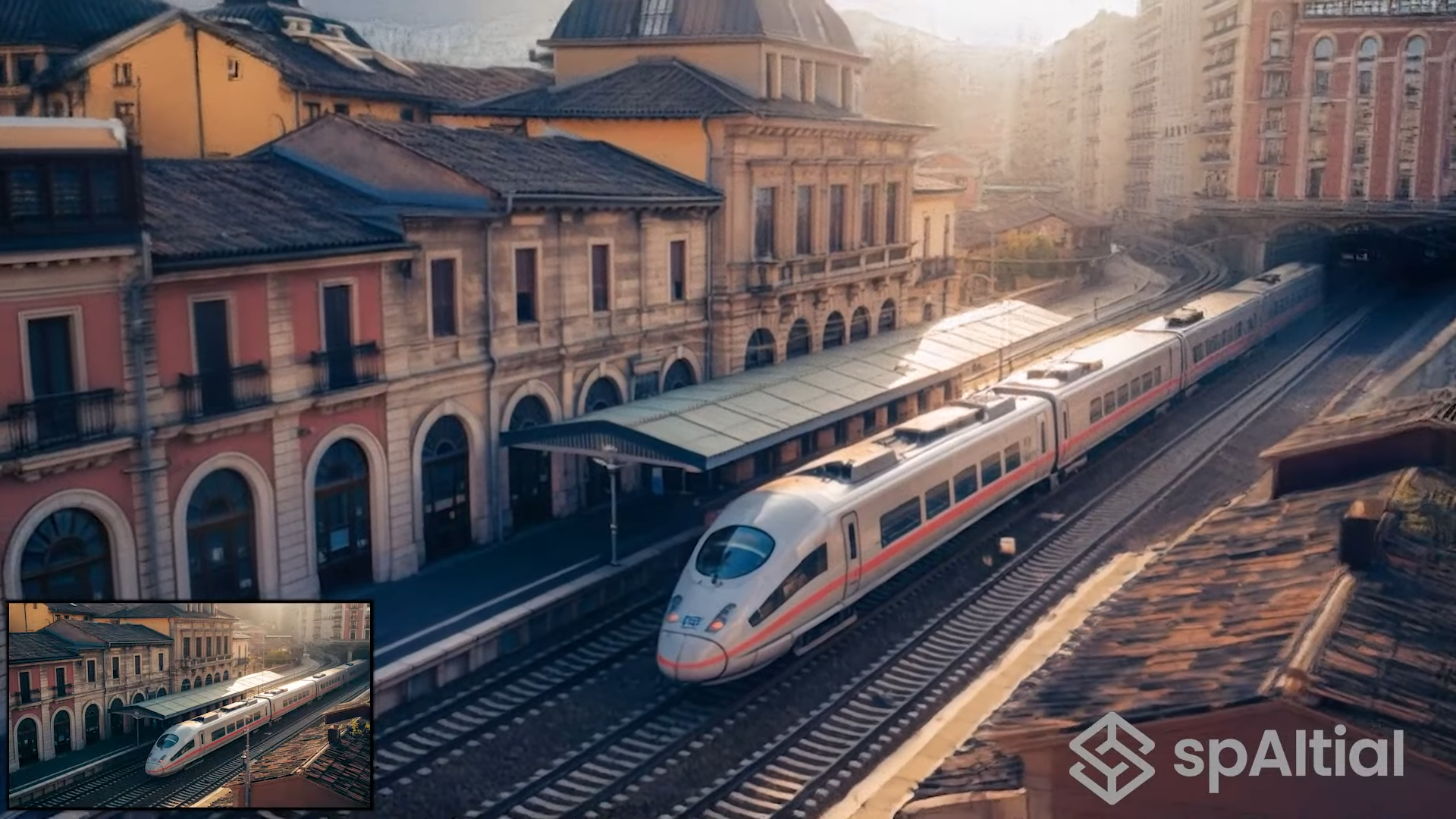Spaitial pushes generative AI to understand and create 3D structures with real physical properties

Munich-based start-up Spaitial is building Spatial Foundation Models that can create and interpret both real and imagined 3D environments from text or images. The company wants to develop a new kind of AI system with a physical understanding of space.
Spaitial, an AI company with offices in Munich and London, is developing technology that can generate and understand complex 3D worlds. At the center of their approach are Spatial Foundation Models (SFMs), a new type of AI model focused on creating 3D environments that are consistent in both space and time.
Unlike current generative AI systems that work with pixels or text, SFMs operate directly on 3D structures like geometry, materials, and physical properties. The idea is to give AI a physically grounded understanding of space and time, something that's been a major weakness in existing models.
Down the road, physical understanding in AI models is the foundation for world models—virtual environments where AI agents learn to navigate and act in complex, dynamic settings.
Creating photorealistic 3D scenes from simple inputs
According to Spaitial, its SFMs can generate photorealistic and physically accurate 3D scenes from just a single image, a short video clip, or a text prompt. Users can then explore these environments interactively from any camera angle.
By shifting from flat, 2D outputs to spatiotemporally anchored 3D representations, Spaitial aims to deliver greater consistency. This is especially important for tasks like simulating physical processes or navigating dynamic, realistic environments.
The company sees applications across immersive media like games, film, and AR/VR, as well as digital twins for planning and simulation, autonomous robotics, and modeling industrial or urban infrastructure. Production facilities could be simulated in real time, for instance, or autonomous machines could be better trained to understand their surroundings.
Research expertise meets business experience
Spaitial just closed a $13 million seed round led by Earlybird Venture Capital, with participation from Speedinvest and several prominent angel investors including Robin Rombach (Black Forest Labs), Victor Riparbelli and Steffen Tjerrild (Synthesia), Jon Barron, Edward Grefenstette, and Maximilian Odendahl.
The funding will go toward advancing the SFM technology, building out infrastructure, and expanding the team. The company is also planning partnerships with businesses to test specific applications. Anyone interested in early access can join a waitlist.
The founding team brings together deep technical and entrepreneurial backgrounds: Matthias Niessner, a professor at the Technical University of Munich and co-founder of avatar startup Synthesia; Ricardo Martin-Brualla, who worked on generative 3D technology at Google; and David Novotny, formerly of Meta, where he worked on digital twins. Luke Rogers, who previously worked at McKinsey and Cazoo, adds business expertise.
The broader team includes Katja Schwarz, who co-developed early generative 3D models like GRAF and VoxGRAF, and Mojtaba Bemana, who researched 4D representations with the paper "X-Fields" and received the EuroGraphics PhD Award 2025.
AI News Without the Hype – Curated by Humans
As a THE DECODER subscriber, you get ad-free reading, our weekly AI newsletter, the exclusive "AI Radar" Frontier Report 6× per year, access to comments, and our complete archive.
Subscribe nowAI news without the hype
Curated by humans.
- Over 20 percent launch discount.
- Read without distractions – no Google ads.
- Access to comments and community discussions.
- Weekly AI newsletter.
- 6 times a year: “AI Radar” – deep dives on key AI topics.
- Up to 25 % off on KI Pro online events.
- Access to our full ten-year archive.
- Get the latest AI news from The Decoder.